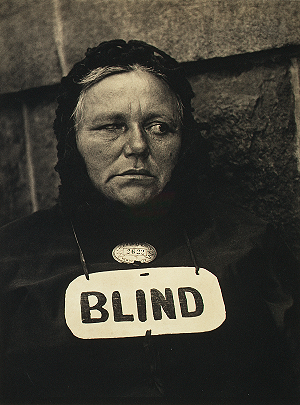As I head to Columbus today for a celebration of the Americans with Disabilities Act 20th anniversary on the Ohio Statehouse lawn, I have bittersweet memories of the morning two decades ago when I walked to the White House to witness the legislation’s signing. Before I left my hotel on Dupont Circle, I called my mother and asked her to read to me Mickey Davis’s column in that morning’s Dayton Daily News. That simple request made up for al the times when I had not allowed her to be my prod mother. I took the long way to 1600 Pennsylvania Avenue, touring cherished streets in the city that my mother and father had taught me to love. I dedicated that walk to them, and ever the flaneur, I savored the path as much as the destination. I was proud to be getting there under my own power, but I wouldn’t forget that my parents had my back.
Mickey Davis was the DDN features editor then. He wrote a column three days a week. He was a feature writer’s feature writer.” I pitched him a ton of stories over the years of our professional association, and he ran with a lot of them. He told me once, “Mark, everyone has a story worth telling in the newspaper, if we only had time to tell them all.” I am blessed that he took the time to write this story about me:
Civil rights law caps long effort by local backer
by Mickey Davis
After the birth of his son, Brendan, six years ago Mark Willis says today ranks as the most significant day in his life.
Willis, who is Partially blind from Stargardt’s disease, will be at the White House in Washington this morning as President Bush signs into law the Americans with Disabilities Act.
Willis, 37, communications director of Wright State University’s Medical School and public affairs director of the American Council of the Blind of Ohio, has visited Washington six times during the past two years and has worked diligently for the passage of the bill.
The landmark legislation; which will affect an estimated 43 million Americans with physical and mental disabilities, will give the disabled the same civil rights protections in jobs, accommodations and services that currently apply to minorities, women and the elderly.
Still reads newspapers
“Disabled people have fought long and hard for this, and now they can’t be discriminated against in going after a job if they are otherwise qualified for that job,” Willis says. “This is a very significant day for people with disabilities. America will be a better place because of this.”
Willis, who lives in Yellow Springs with his son, grew up in Beavercreek. Six months after he graduated from Beavercreek High School in 1973, he was diagnosed With Stargardt’s disease.
He was taking a class in Russian at Wright State and couldn’t decipher the formations in the alphabet.
“Basically (with Stargardt’s) I have a narrow area of peripheral Vision but my central eyesight is greatly diminished,” he said.
No longer can he drive a car:
He gets most of his news by listening to public radio (WYSO-FM) and reads the Dayton Daily News and New York Times via a large monitor on which the newspaper pages are enlarged on a screen with a video camera.
“It takes me several hours to read a newspaper,” he says.
He is able to read three books a week, however, through the Library of Congress’ Talking Books program and listens regularly to the tapes of several magazines — Atlantic, Harper’s and the New York Times large-print edition.
Misses eye contact
“People might not recognize I’m partially blind, but I need to be up close, from three to four feet away, to distinguish faces,” he says.” I miss being able to make eye contact and I’m probably at the point where I’ll need a mobility aid such as a cane to walk with,”
Willis, a Wright State graduate who has worked in the medical school’s communications office for five years, is delighted, however, with the bill protecting’ the rights of the disabled.
It’s the first piece of civil rights legislation to be passed since the Civil Rights Act of 1964.
“A lot of people assumed that a law protecting the rights of people with disabilities was already in place,” he said. “Discrimination was against the law within the federal government or by recipients of federal contracts, but the same kind of law has not been applied to the private sector or to local and state governments.
“Up to now there has been a little amendment here, a clause there, but this act makes a clear and comprehensive statement about the rights of the disabled.”
As he watches President Bush sign the bill today Willis says he’ll be there representing “all the grass-roots people” who fought for the bill’s passage and who will benefit from it.
“This is just the beginning,” Willis says, “but what a wonderful beginning.”
Dayton Daily News | July 26, 2023
![gustave_caillebotte_paris_street_rainy_day Gustave Caillebotte. Paris Street, Rainy Day (La Place de l’Europe, temps de pluie). 1877. Oil on canvas. Art Institute of Chicago. [Source: Wikimedia Commons]](../wp-content/uploads/2009/02/gustave_caillebotte_paris_street_rainy_day_1877_wiki.jpg)
![Fog at Isle Royale [Source: wildmengoneborneo.com] Fog at Isle Royale [Source: wildmengoneborneo.com]](../wp-content/uploads/2008/04/isle_royale_fog.jpg) "Brendan, this is what the world looks like all the time to me. Just a little fog. It’s a fine day for boating on the Great Lakes.” Without missing a stroke he turned to dart a skeptical glance at me. Brendan the Navigator. When we named him I didn’t tell his mother everything the legendary Irish name implied. But I imagined him taking on the role of navigator for me. Growing up with Coastal Survey charts and tales of Great Lakes shipwrecks, he came to know Superior as another home. He never doubted the wisdom of canoeing there with a father who was half blind.
"Brendan, this is what the world looks like all the time to me. Just a little fog. It’s a fine day for boating on the Great Lakes.” Without missing a stroke he turned to dart a skeptical glance at me. Brendan the Navigator. When we named him I didn’t tell his mother everything the legendary Irish name implied. But I imagined him taking on the role of navigator for me. Growing up with Coastal Survey charts and tales of Great Lakes shipwrecks, he came to know Superior as another home. He never doubted the wisdom of canoeing there with a father who was half blind. ![ada_signing_072690_ucp_2 President George H.W. Bush signs into law the Americans with Disabilities Act (ADA) on July 26, 2023 as Justin Dart looks on. [Source: ucp.org]](../wp-content/uploads/2010/07/ada_signing_072690_ucp_2.jpg)

 If there is an emerging genetic underclass, I could run for class president or class clown. Read more in
If there is an emerging genetic underclass, I could run for class president or class clown. Read more in  The legendary Kiki of Montparnasse posed for Man Ray’s
The legendary Kiki of Montparnasse posed for Man Ray’s 
0 Comments
There are no comments yet, be the first by filling in the form below.
Leave a Comment